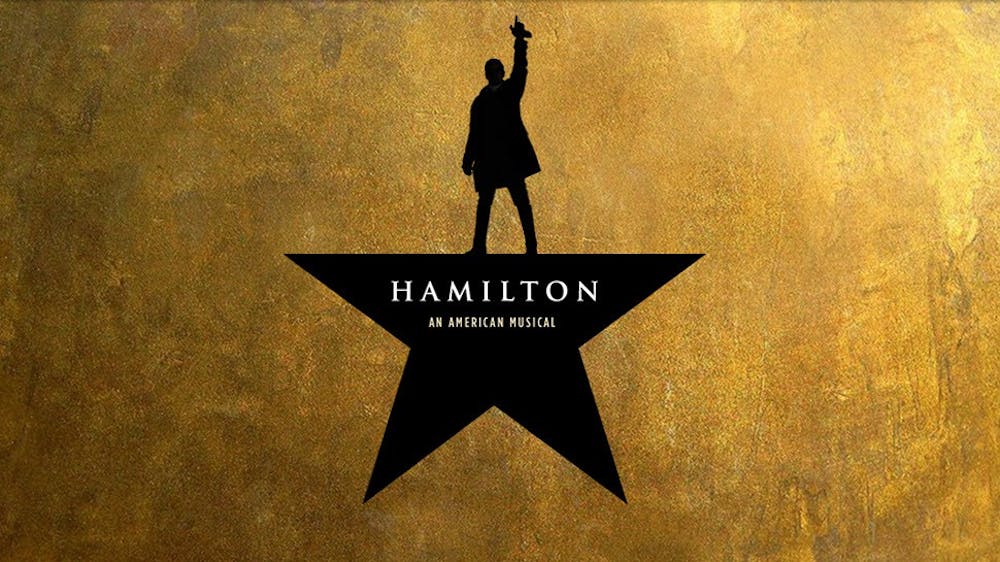New York Times co-chief theater critic Ben Brantley opened his second “Hamilton” review writing “Yes, it really is that good.”
Four years later, it is still that good.
“Hamilton: an American Musical” began its Broadway run on August 6, 2015 at the Richard Rogers Theater. Since then, the smash hit, written by Lin-Manuel Miranda, has gained a level of fame few other performances could imagine.
That stardom, dozens of different cast members, the tsunami of cash (cheap seats at Rogers start at $300) and criticisms of historical inaccuracies are seemingly unable to worsen the performance. It is still that good.
“Hamilton” succeeds in taking the 250-year-old myths about the origins of the United States, and contextualizing them in the modern tensions of contemporary times. Personal ambition, the struggle of immigrants, toxic masculinity and the role of America in international affairs are the context in which some characters thrive and some die.
“Hamilton’s” opening number, “Alexander Hamilton,” showcases the performers singing directly to the audience. Aaron Burr, played by Daniel Breaker, opens the musical asking “How a bastard, orphan, son of a whore and Scotsman dropped in the middle of a forgotten spot in the Caribbean grow up to be a hero and a scholar?”
It’s a question Burr continues to ask throughout and that eventually drives him to shoot Hamilton, played by Jevon McFerrin, something he confesses in this first number.
Breaker and McFerrin shine in their roles. The new guys stay true to the original interpretations of Miranda as Hamilton and Leslie Odom jr. as Burr.
Both Hamilton and Burr are orphans with ambition beyond that of the better-known characters in the musical such as Thomas Jefferson and George Washington. When singing and rapping about this drive, both characters are seemingly unable to separate their ambition form the trauma of losing both their parents at an early age.
The first half of the musical covers Hamilton’s experience during the tremulous seven years of the American Revolution. From the signing of the declaration of independence to the battle of Monmouth to the decisive battle of Yorktown and the Chesapeake Bay.
On this journey, Hamilton befriends Marquis de Lafayette, played by Gregory Treco, the military advisor who played an instrumental part in securing the French alliance.
When the audience meets the three Schuyler Sisters, whose songs bring back memories of TLC and Destiny's Child, Burr introduces them as rich girls slumming it in the city.
Get content from The Daily Lobo delivered to your inbox
In “Helpless,” Angelica introduces her sister to Hamilton, who Eliza falls for him instantly. The number is then juxtaposed with “Satisfied.” Angelica reveals that she is just as in love with Hamilton as Eliza is, but is unable to pursue those feelings because her families standing demands she marries for status not love.
Unlike McFerrin and Breaker, Denee Benton as Eliza and Mandy Gonzalez as Angelica varrie from the original cast. Gonzalez’s portrayal of Angelica show the older sister as much more vulnerable than Renée Elise Goldsberry’s much more guarded Angelica.
The musical’s second half sees Hamilton’s slow fall. The hip-hop hero is unable to resist the temptations of the married Maria Reynolds. Reynolds’ husband then proceeds to blackmail Hamilton in what is destined to become America’s first sex scandal.
Meanwhile, Hamilton’s success as Treasury Secretary becomes inescapable to Burr, who has consistently compared himself to Hamilton as he tries to understand his rival. This is best exemplified in Breaker’s show-stopping performance of “The Room Where It Happened.”
This is the highpoint of the incredible stage performance. The number starts off humbly with Burr and Hamilton causally conversing. By the end of the number the entire stage is alive with cast members and ensemble moving in unison.
Hamilton’s final moments come in a soliloquy where he seems regretful of his choice throughout the musical to pursue his ambition and codify a legacy. “What is a legacy? It’s planting seeds in a garden you never get to see.”
Hamilton recalls the intimacy in the relationships he’s had along his journey as he raises his gun in surrender to Burr, who guns down his only friend. Burr realizes this when he pulls the trigger, screaming, “Wait!”
The legacy of “Hamilton” the musical is unknowable. It’s made a lot of money. In 2017, Forbes estimated that the musical had made $1.6 billion. Historical inaccuracies, while discomforting to some, seem unable to upend the cash crop.
“I am loath to tell people to mortgage their houses and lease their children to acquire tickets to a hit Broadway show. But ‘Hamilton,’” wrote Brantley, “might just about be worth it.”
Justin Garcia is a freelance reporter with the Daily Lobo. He can contacted by email at news@dailylobo.com or on Twitter @Just516garc.






